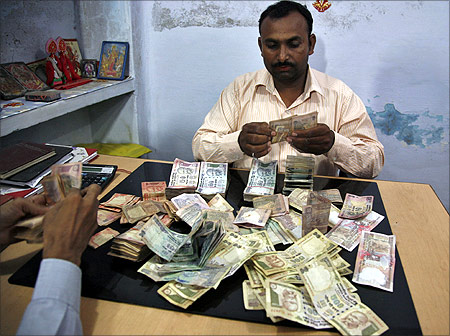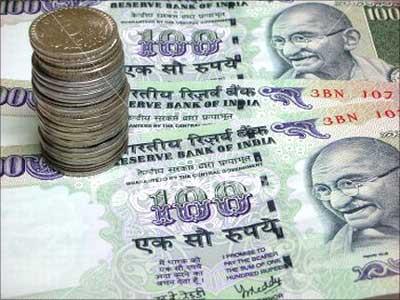 | « Back to article | Print this article |
A dummy's guide to investing in chit funds
Though a popular savings option in India's villages and towns, chit funds have resulted in scams too. Here's what you must know about chit funds before investing your money.
Chit funds have been a popular savings scheme in several parts of India for generations now. It has paved it's way as a convenient finance option amongst businessmen, small scale industrialists, and other small time investors.
Though very often shrouded by news of fraudulence, they have still managed to retain their popularity. So what exactly are chit funds and how efficient a financial tool is it?
Here's more on one of the most popular savings scheme in India...
The beginning of chit funds
Chit funds evolved years ago, when the present system of banking did not exist. Few families in a village would get together to form a chit or a group, to save money and to avail of loans amongst the group formed.
A sensible person is chosen to manage the group.
This informal system of savings prevailed only on trust. Gradually, as groups became larger and the money involved became huge, many companies started chit fund schemes with attractive offers.
To thus provide for the regulation of chit funds and for matters connected therewith, the government introduced the Chit Funds Act in 1982.
Please click NEXT to continue reading
A dummy's guide to investing in chit funds
What is a chit fund?
A chit fund is a savings/borrowing scheme, in which a group of people enter into an agreement to contribute fixed amounts periodically, for a specified period of time.
The amount so collected (or the chit value) is distributed among each of the persons in turns, which is determined by way of lots or an auction.
Chit funds provide an opportunity to save excess cash on a daily, weekly or monthly basis, and give an easy access to it in case of emergency.
Please click NEXT to continue reading
A dummy's guide to investing in chit funds
How does a chit fund work?
Chit fund schemes possess a predetermined chit value and duration. The amount collected from members is auctioned out every month.
Bidders can bid up to a maximum of this total collected value. The difference between the gross sum collected and the actual auction amount, known as the discount, is then equally distributed among subscribers, or, is deducted from their next month's premium.
Let us take an example of a scheme of 25 members contributing Rs 100 each per month, for 25 months.
The total amount collected per month would be Rs 2,500. In the auction meeting, bidders can bid only up to this total amount.
The successful bidder is one who gives the highest bid amount, not exceeding the maximum limit, within the specified auction time. Suppose the winning bidder bids for Rs 2,000, he would get this amount and, the rest of the amount i.e. Rs. 500 is divided among the 25 members.
This discount of Rs 20 (i.e. 500/25) is then returned back to each member. So the next month's contribution would be Rs 100- Rs 20 = Rs 80.
This process gets repeated every month till the end of the scheme, giving each member a chance of receiving the money. If in a particular month there are more than one person willing to take the sum, a lottery is taken to declare the person who would get the sum.
Please click NEXT to continue reading
A dummy's guide to investing in chit funds
Benefits of investing
A chit fund investment has it's share of benefits too:
- It inculcates the habit of compulsory regular saving.
- It earns dividends every month. So the net effective rate of return proves to be pretty attractive.
- For any unexpected financial requirement, bidding for the lump sum amount, could prove to be a better option than going through the hassles of a loan.
- Chit fund investments are not affected by any market fluctuations.
- Finance option through chit funds are easier to repay through the remaining monthly installments.
Please click NEXT to continue reading
A dummy's guide to investing in chit funds
Drawbacks
Chit funds do not offer any predetermined or fixed returns. Higher returns are earned when there are more number of members in the group or if the duration of the scheme is longer.
One would earn more, when more members need emergency funds. Thus returns cannot be calculated and decided when one joins the scheme.
Safety of chit funds
With the plethora of chit fund companies around, the safety of a chit fund lies in choosing the right one. In a registered chit fund company, under legal binding, the activities are regulated and institutionalised by the Chit Fund Act. And hence could be considered safe.
However, other unregistered companies operating informally do exist. One needs to exercise caution while choosing where s/he desires to invest.
Chit funds definitely are an attractive option for regular saving. It inculcates a disciplined approach to financial planning. It has the added advantage of bringing a combination of savings as well as hassle free borrowing.
This dual purpose investment tool could be a friend in need when you face unexpected financial emergencies.





